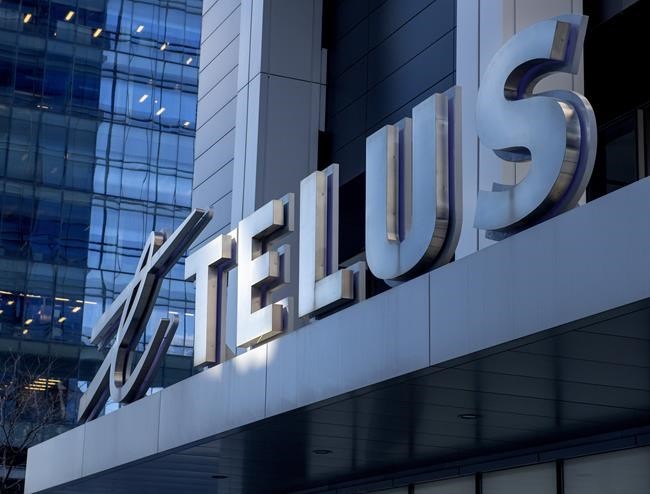VANCOUVER — The chief executive of Telus Corp. says the Canadian telecommunications market and the launch of 5G technology is being hampered by regulations and expensive spectrum auctions.
"5G spectrum auctions around the world confirm that international carriers pay much less for this resource than their Canadian counterparts," Darren Entwistle told analysts on a call Friday.
"Canada's position as a global network leader is being undermined by burdensome regulations governing access to spectrum and its cost."
Spectrum is a term the telecommunications industry uses to refer to airwaves that transmit wireless signals. Companies get access to spectrum through auctions the federal government hosts.
While Entwistle didn't offer specific ways he'd change the auctions or industry, he said the country needs "responsible, forward-looking and predictable regulatory policy."
Spectrum licenses have long been a focus at Telus, which revealed Thursday that it had acquired 142 new licenses in B.C., Alberta, Manitoba, Ontario and Quebec for $1.95 billion in a recent auction.
"The spectrum that we procured was expensive, particularly if you look at it on a relative basis," said Entwistle.
"I don't think that there's any surprise behind that when you artificially constrain supply."
Rival Rogers Communications Inc. forked out about $3.33-billion to buy 325 spectrum licences, while BCE Inc. grabbed 271 licences for $2.07-billion in the same auction that netted the federal government $8.91-billion.
Combined with spectrum it acquired privately in January 2021, Telus now holds licences to an average of 25 MHz of 3500 spectrum nationally and 40 MHz in its key markets, at an average price of $2.53 per MHz for each person the licence covers.
Telus is striving to have 75 per cent of Canada's population covered by 5G technology by the end of the year.
"It's our job now to get on with operationalizing that spectrum," said Entwistle.
Aside from the spectrum auction, Telus has fixated in recent months on growing its customer base and its virtual care offerings, which became even more popular during the COVID-19 pandemic as people became accustomed to connecting with their doctors through technology.
Telus reported 223,000 new customer additions in the quarter, up 82,000 from last year. The new additions included 89,000 mobile phones, 84,000 connected devices and 30,000 internet, 19,000 security and 11,000 TV customer connections.
Members of the company's virtual care programs totalled 2.2 million by the end of its second quarter, up by about 1 million over the past 12 months.
Digital health transactions amounted to 137.1 million, up 13.0 million over the second quarter of 2020.
Those areas helped the Vancouver-based telecommunications company's net income attributable to common shareholders climb 15.5 per cent to $335 million in the second quarter from $290 million a year earlier.
That equalled 25 cents per share for the three months ended June 30, two cents per share better than the second quarter of 2020.
Telus' adjusted profits reached $348 million or 26 cents per share, compared with $316 million or 25 cents per share in the prior year quarter.
Revenues increased 10.3 per cent to $4.1 billion, from $3.7 billion, driven by an increase in customer, mobile phone and fixed customer net additions.
Telus was expected to report 26 cents per share in adjusted profits on $4.08 billion of revenues, according to financial data firm Refinitiv.
The results pushed Telus' stock up by 14 cents or less than one per cent to $27.63 in early afternoon trading Friday.
This report by The Canadian Press was first published July 30, 2021.
Companies in this story: (TSX:T)
The Canadian Press



